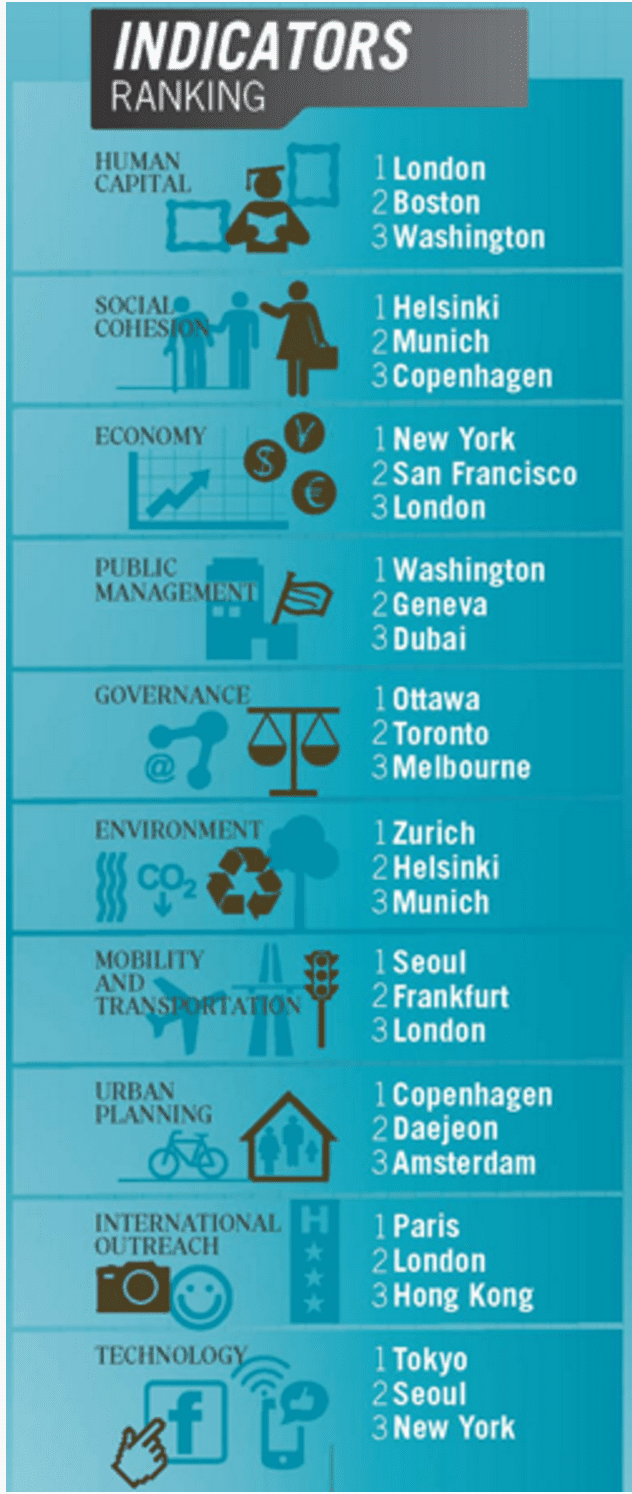Mass urbanization is straining resources in metropolitan areas and having a direct impact on quality-of-life for residents. This global trend is prompting increasing investment in solutions designed to transform high population density areas into smart cities.
Smart cities is a somewhat nebulous term–it can include a huge variety of use cases running the gamut from automated municipal services to adding intelligence to transport and waste collection systems.
In its tabulation of the top smart cities around the world, the IESE Business School at the University of Navarra in Barcelona, Spain, used 10 criteria: economy, technology, human capital, social cohesion, international outreach, environment, mobility, transportation, urban planning, public management and governance.
IESE researchers developed a top 3 for each of the categories, as well as a compiled an overall top 3; that information is displayed in the infographic below.

Based on the researchers’ findings, New York, London and Paris, in that order, are the top 3 smart cities in the world.
From the report: “Over the past three years, New York and London have taken turns in the top spot, while Paris has held steady in third place. These high rankings were earned despite low marks for social cohesion, their Achilles’ heel (with New York ranking 161st, London 129th and Paris 91st). Relatively low social cohesion may be due to their statuses as international megacities.”
The researchers offered as advice “the importance of avoiding a silo mentality, the absence of a single model for success, the desirability of achieving some acceptable minimums in the established categories, and the slow pace of change, since large-scale initiatives need time to crystallize.”
